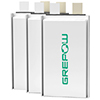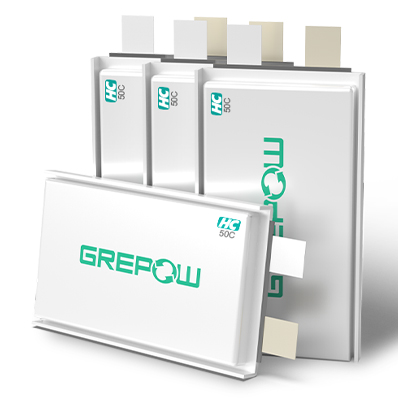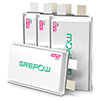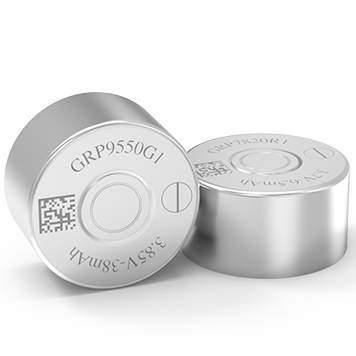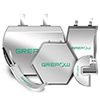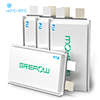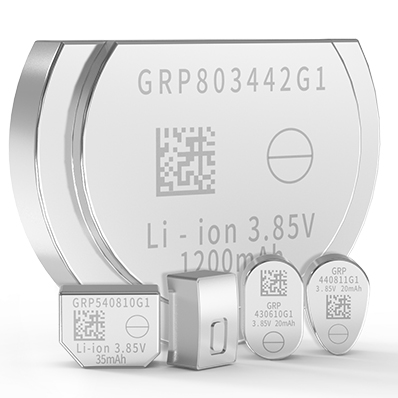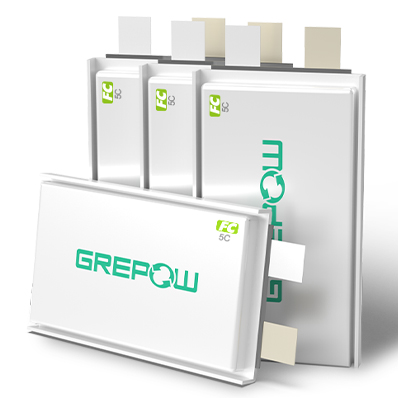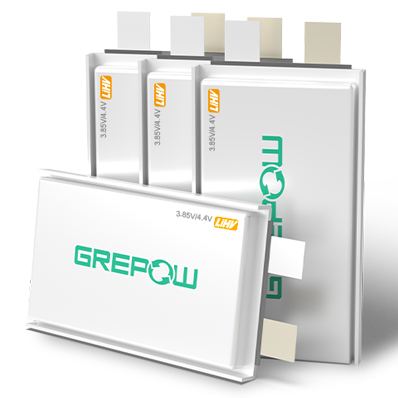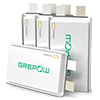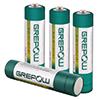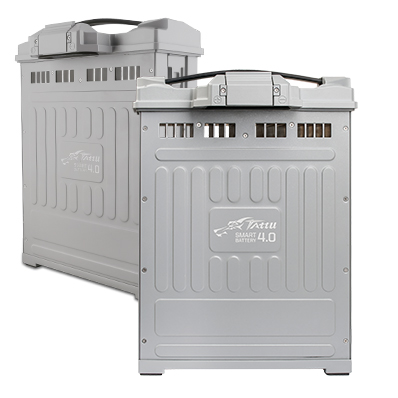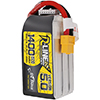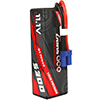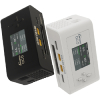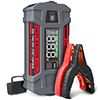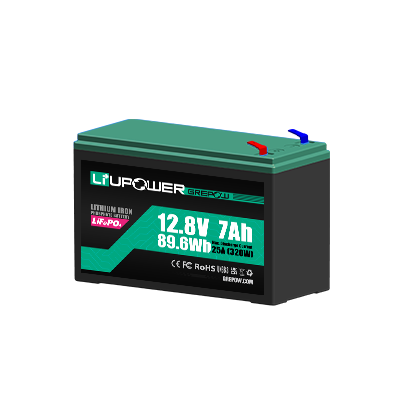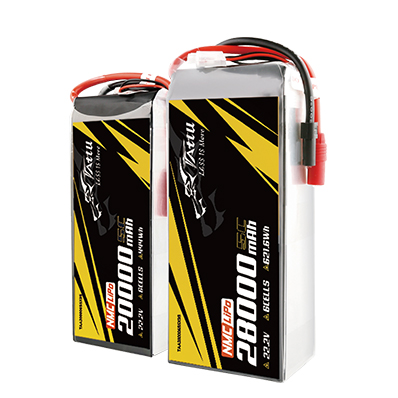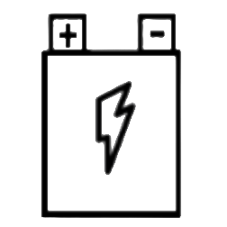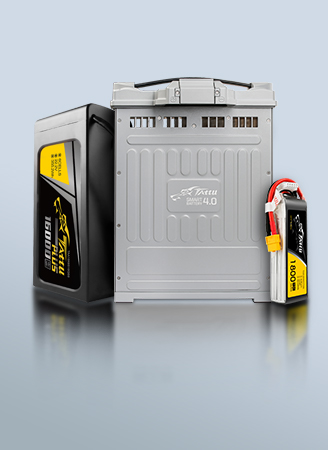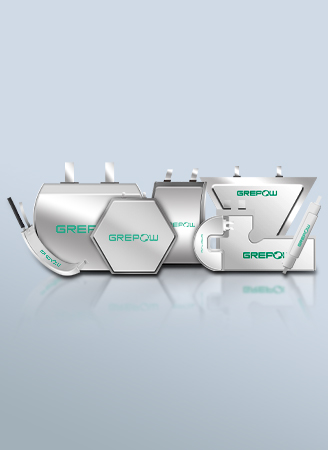Top LiPo Battery Manufacturers You Can Trust
Lithium Polymer (LiPo) batteries have become exceedingly popular in various modern applications due to their distinctive properties and capabilities. These rechargeable batteries utilize a polymer electrolyte instead of a liquid one, which offers several advantages over traditional battery technologies. LiPo batteries are mainly recognized for their high energy density, lightweight construction, and flexible form factors, making them suitable for a range of electronic devices from consumer electronics to industrial machinery.
Key Characteristics of LiPo Batteries
●High Energy Density: LiPo batteries offer one of the highest energy densities available today. This translates to longer run times and more power in a compact size, which is particularly beneficial for mobile devices and electric vehicles.
●Lightweight Construction: The polymer electrolyte is lighter than the liquid electrolytes used in other batteries, reducing the overall weight. This feature is crucial for applications such as drones and other aerial devices that require minimal weight to maximize efficiency and flight times.
●Flexible Form Factors: The absence of a rigid case enables these batteries to be manufactured in various shapes and sizes, providing more design flexibility. This adaptability makes it easier for product designers to integrate power solutions into compact spaces.
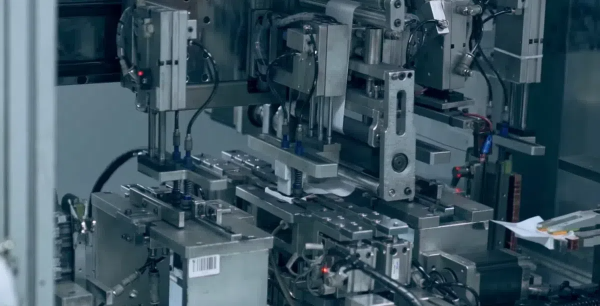
Common Applications of LiPo Batteries
●Consumer Electronics: Smartphones, tablets, laptops, and wearable technology predominantly utilize LiPo batteries due to their high energy density and compact size.
●Remote-Controlled Devices: Drones, RC cars, boats, and airplanes benefit from the lightweight nature and power density of LiPo batteries, enhancing performance and run times.
●Electric Vehicles: The high energy capacity and relatively lightweight construction of LiPo batteries contribute to their suitability in electric bikes, scooters, and increasingly, electric cars.
●Medical Devices: Medical apparatus, including portable monitoring systems, defibrillators, and hearing aids, often rely on LiPo batteries for their reliability and compact form factors.
●Industrial Tools: Power tools, such as electric drills and saws, as well as other industrial equipment, frequently use LiPo batteries for their robust performance and longer operational periods.
Safety Considerations
Despite their numerous advantages, LiPo batteries require careful handling and specific safety measures to mitigate associated risks. They are susceptible to damage from overcharging, physical impact, and improper storage, which can lead to swelling, leakage, or even fires. Therefore, users must adhere to recommended charging cycles, use appropriate chargers, and store these batteries in a safe, controlled environment. Reputable manufacturers implement stringent quality control and include safety features such as built-in voltage regulation and short-circuit protection to enhance the reliability of their LiPo batteries.
Key Features of Reliable LiPo Batteries
When evaluating the reliability of LiPo batteries, several key features are indispensable. These characteristics ensure safety, longevity, and performance, making them crucial in determining the quality of a LiPo battery cell.
1. High Energy Density
Reliable LiPo batteries exhibit high energy density, allowing them to store more energy within a compact size. This trait is particularly valuable for applications requiring lightweight power sources, such as UAVs, RC cars, and mobile electronics.
2. Safety Mechanisms
Safety is paramount in LiPo battery performance. Reliable models come equipped with:
Protection circuits: Safeguard against overcharging, over-discharging, and short-circuits.Thermal cutoff switches: Prevent overheating.Durable casings: Resist punctures and external damage.
3. Consistent Discharge Rates
LiPo batteries must offer consistent discharge rates to maintain performance stability. The C-Rating indicates the safe continuous discharge rate of the battery. Higher C-Ratings typically translate to better power delivery and reliability.
4. Long Cycle Life
A long cycle life is essential for the cost-effectiveness and environmental impact of LiPo batteries. Reliable LiPos are designed to withstand hundreds to thousands of charge-discharge cycles without significant capacity loss.
5. Low Self-Discharge Rate
The self-discharge rate is crucial for applications involving intermittent usage. Reliable LiPo batteries demonstrate low self-discharge rates, ensuring they retain charge for extended periods when not in use.
6. Temperature Performance
Reliable LiPo batteries can operate efficiently across a wide temperature range. This ensures consistent performance in various environmental conditions, from extreme cold to intense heat.
7. Voltage Stability
Voltage stability is pivotal for sensitive electronics. Reliable LiPo batteries maintain a steady voltage throughout their discharge cycle, preventing damage to connected devices.
8. Manufacturer Reputation
The credibility of a manufacturer significantly impacts the trustworthiness of their LiPo batteries. Established manufacturers with proven track records are more likely to produce reliable, high-quality batteries.
9. Certifications
Certificates and compliances such as UL, CE, and RoHS underscore a battery’s adherence to safety and quality standards. Reliable LiPo batteries commonly feature these certifications.
By observing these key features, consumers can better gauge the reliability of LiPo batteries, ensuring optimal performance, safety, and durability in their respective applications.
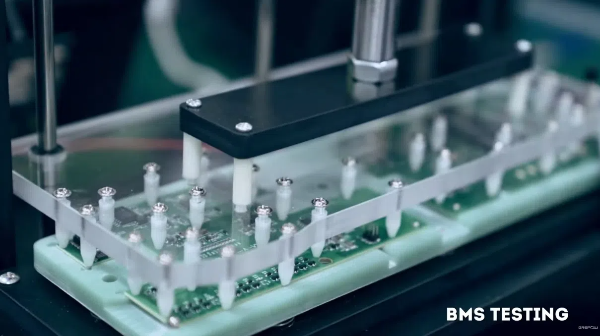
Factors to Consider When Choosing a LiPo Battery Manufacturer
Choosing the right LiPo battery manufacturer is crucial for ensuring product reliability and performance. Several factors must be considered to make an informed decision:
Quality Assurance and Certifications
A manufacturer's adherence to industry standards and certifications signifies their commitment to quality. Look for companies with ISO certification and those who comply with UL, RoHS, and CE standards.
Manufacturing Capabilities
Evaluate the manufacturer's production capacity and technological expertise. It’s important to consider whether they can meet your volume requirements and whether they use advanced equipment and technologies to ensure product consistency.
Research and Development
Innovation is key in the battery industry. A manufacturer with a strong emphasis on R&D indicates they are continually improving their products and developing new technologies. This also means they are likely to offer the latest advancements in battery performance and safety.
Customizability
The ability to customize battery specifications to meet unique project requirements is a significant advantage. Check whether the manufacturer offers flexible options for capacity, voltage, dimensions, and connectors.
Reputation and Reliability
Research the manufacturer’s market reputation through reviews, case studies, and client testimonials. A reliable manufacturer will have positive feedback and a track record of delivering high-quality products on time.
Customer Support
Evaluate the level of customer support provided. A responsive and knowledgeable customer service team can make a significant difference in resolving issues quickly and effectively. Look for manufacturers who offer comprehensive support, from initial inquiry to post-sales service.
Cost Efficiency
While cost should not be the sole determining factor, it is still essential to consider. Conduct a cost-benefit analysis to ensure that the manufacturer offers competitive pricing without compromising on quality.
Delivery and Lead Times
Timely delivery is critical to maintaining your project schedules. Assess the manufacturer’s lead times and their ability to meet deadlines consistently. Delays in battery supply can disrupt production and affect overall efficiency.
Safety Record
The safety of LiPo batteries is paramount. Investigate the manufacturer’s safety protocols and their history of safety incidents. High safety standards reduce risks associated with battery handling and usage.
After-Sales Service
Comprehensive after-sales service, including warranties and technical support, ensures that any issues post-purchase are addressed promptly. This support reflects the manufacturer’s confidence in their product quality and their commitment to customer satisfaction.
Thoroughly evaluating these factors will help in identifying a LiPo battery manufacturer that aligns with your specific requirements and ensures a successful partnership.
Top LiPo Battery Manufacturers Globally
Identifying the best LiPo battery manufacturers on a global scale requires discerning their market presence, cell quality, innovative engineering, and customer feedback. The following list highlights some of the top-tier manufacturers:
1. Panasonic Corporation
Panasonic Corporation has a long-established reputation for exceptional quality and reliability in the battery industry. By focusing on advanced technologies, Panasonic has become synonymous with high-capacity, long-life LiPo batteries, serving both consumer and industrial markets.
2. Samsung SDI
Samsung SDI is a major player in the LiPo battery market. The company’s LiPo batteries are renowned for their performance and safety features. Samsung SDI continuously invests in research and development, setting industry standards with innovative energy solutions and efficient power storage.
3. LG Chem
LG Chem is recognized globally for its cutting-edge LiPo batteries. Their product line caters to a broad spectrum of applications, including electric vehicles, portable electronics, and energy storage systems. Their continuous commitment to quality has made them a trusted name in energy storage solutions.
4. BYD Company Limited
BYD Company Limited is a Chinese manufacturer known for its comprehensive approach to energy solutions. Their LiPo batteries are integral to their sustainable and renewable energy products. BYD batteries are widely used in electric vehicles and large-scale energy storage applications.
5. Sony Energy Devices Corporation
Sony Energy Devices Corporation, a subsidiary of Sony Group Corporation, excels in creating dependable LiPo batteries for various consumer electronics and professional equipment. Their consistent focus on safety and performance ensures longevity and reliability in their products.
6. Amperex Technology Limited (ATL)
Amperex Technology Limited, a subsidiary of TDK Corporation, is a significant supplier of LiPo batteries, particularly in the consumer electronics market. Their batteries are commonly found in smartphones, laptops, and other high-demand electronic devices, offering high energy density and reliable performance.
7. Shenzhen Grepow Battery Co., Ltd.
Shenzhen Grepow Battery Co., Ltd. stands out for its specialized, high-discharge LiPo batteries. Grepow is particularly esteemed in the drone, UAV, and RC applications sectors, where high-powered and dependable performance is crucial.
8. EEMB Energy Power Co., Ltd.
EEMB specializes in designing and manufacturing custom LiPo batteries tailored to specific requirements. Their solutions serve a variety of applications, from medical devices to IoT products, ensuring flexibility and efficiency in their energy solutions.
9. Tianjin Lishen Battery Joint-Stock Co., Ltd.
Tianjin Lishen is a prominent Chinese manufacturer focusing on high-quality LiPo batteries for diverse applications, from consumer electronics to electric vehicles. Their emphasis on quality control and technological advancement positions them as a reliable choice.
10. Thunder Power RC
Thunder Power RC is a leader in the high-performance, hobbyist market for LiPo batteries. Known for their high discharge rates and durability, Thunder Power RC batteries are a top choice in areas requiring rapid power delivery and robustness.
Pioneering LiPo Battery Manufacturers in the USA
The United States hosts several pioneering LiPo battery manufacturers known for their innovation, quality, and reliability. These companies play a crucial role in the global battery market, providing advanced power solutions for various applications.
Tattu
Tattu, a brand of Grepow, has built a strong reputation in the LiPo battery sector. They are recognized for their:
High Performance: Exceptional energy density and long cycle life.Research and Development: Continuous innovation through cutting-edge R&D.Reliability: Durability and stability in extreme conditions.
Venom Power
Venom Power stands out as a leading LiPo battery manufacturer in the USA, known for their extensive product range and high-quality standards. Their batteries are renowned for:
Wide Applicability: Suitable for drones, RC vehicles, and other hobbyist applications.Quality Assurance: Strict quality control processes to ensure safety and performance.Customer Support: Comprehensive support services including user manuals and troubleshooting guides.
MaxAmps
MaxAmps is a key player in the LiPo battery market, celebrated for their custom battery solutions. Their offerings include:
Custom Configurations: Tailored batteries to meet specific requirements.High CP Ratings: Batteries with high discharge rates for power-intensive applications.Made in the USA: Focus on domestic manufacturing to ensure top-quality products.
Thunder Power RC
Thunder Power RC is notable for their high-performance LiPo batteries used primarily in RC applications. Their strengths are:
Advanced Technology: Utilization of the latest battery technologies for superior performance.Long Shelf Life: Batteries with extended shelf life and low self-discharge rates.Safety Features: Built-in safety mechanisms to prevent overcharging and overheating.
Turnigy
Turnigy, although originally an international brand, has made significant inroads in the USA market. They are known for:
Competitive Pricing: Offering high-quality batteries at affordable prices.Wide Range: Diverse product lineup catering to various voltage and capacity needs.User-Friendly: Batteries with easy-to-follow installation and maintenance guidelines.
Key Attributes of These Manufacturers
These pioneering companies share several common attributes that contribute to their leading positions in the market:
●Innovation: Constant advancements in battery technology.
●Reliability: Consistent performance across different environments and use cases.
●Quality Assurance: Rigorous testing and stringent quality standards.
●Customer Support: Strong commitment to customer satisfaction through support services.
●Their contributions significantly shape the way LiPo batteries are perceived and utilized, setting benchmarks for quality and performance in the industry.
Innovative LiPo Battery Manufacturers in Europe
The European market for LiPo (Lithium Polymer) batteries is known for its innovative manufacturers. Several companies are leading the charge, adding value through cutting-edge technology, sustainability, and superior performance. Here are some notable manufacturers:
1. Saft Batteries
Headquartered in France, Saft Batteries is known for its robust and high-performance LiPo batteries. The company leverages over 100 years of experience in battery technology. Saft’s research and development focus is on:
Enhancing energy densityProlonging battery lifeEnsuring environmental sustainability
2. Varta AG
Varta AG, based in Germany, is another leading player in the European LiPo battery market. It specializes in providing high-energy density batteries suited for various applications. Key strengths include:
Advanced manufacturing techniquesHigh-quality standardsExtensive product range
3. Leclanché
Swiss manufacturer Leclanché is distinguishable by its commitment to revolutionizing energy storage solutions. The firm focuses on integrating state-of-the-art technology into its LiPo batteries. Attributes of Leclanché include:
Research-intensive product developmentCustomizable battery solutionsStrong emphasis on safety
4. Energus Power Solutions
Based in the United Kingdom, Energus Power Solutions has carved a niche in the market by offering customized LiPo battery solutions. The company aims to meet unique customer requirements through:
Tailored design and manufacturingHigh-quality controlEfficient battery management systems
5. EVLithium
A notable name in the European LiPo battery landscape is EVLithium from Poland. They specialize in applications requiring high power density and reliability. EVLithium is recognized for:
High-performance batteriesComprehensive customer supportCommitment to sustainability
6. Kokam
Although headquartered in South Korea, Kokam has a significant presence in Europe. Their LiPo batteries are renowned for industrial applications. Kokam emphasizes:
Innovative battery technologiesHigh energy efficiencyLong cycle life
Conclusion
These manufacturers exemplify the European drive for quality, innovation, and sustainability in the LiPo battery sector. They continue to push the boundaries of battery technology, enhancing various applications from consumer electronics to industrial machinery.
Leading LiPo Battery Manufacturers in Asia
Asia stands as a powerhouse in the LiPo battery industry, hosting several leading manufacturers renowned for their commitment to quality, innovation, and sustainability. Notable companies include:
Panasonic Corporation (Japan):
Known for its extensive product portfolio, Panasonic offers high-performance LiPo batteries ideal for various applications, including consumer electronics and industrial equipment.Focuses on advanced battery technologies, ensuring enhanced safety and durability.
Samsung SDI Co., Ltd. (South Korea):
A subsidiary of Samsung Group, this company excels in producing high-capacity LiPo batteries suitable for mobile devices, electric vehicles, and energy storage systems.Emphasizes cutting-edge research and development to stay ahead in the competitive market.
LG Chem Ltd. (South Korea):
One of the largest chemical companies globally, LG Chem specializes in crafting high-quality LiPo batteries used in smartphones, laptops, and electric vehicles.Utilizes state-of-the-art manufacturing processes to deliver reliable and efficient energy solutions.
BYD Company Ltd. (China):
Renowned for its diversified range of LiPo batteries, BYD caters to the automotive, renewable energy, and consumer electronics sectors.Incorporates innovative designs and superior technology to ensure safety and performance.
Contemporary Amperex Technology Co., Limited (CATL) (China):
As a major player in the LiPo battery industry, CATL supplies batteries predominately for electric vehicles and energy storage systems.Strives to deliver sustainable energy solutions, leveraging extensive research and development capabilities.
Amperex Technology Limited (ATL) (China):
Specializes in small-form factor LiPo batteries for mobile phones, tablets, and wearable devices.Focuses on producing lightweight and compact batteries without compromising on power or longevity.
Other emerging players to watch:
GS Yuasa Corporation (Japan):
Offers a wide array of LiPo batteries aimed at both consumer and industrial applications.Known for their commitment to innovation and environmental responsibility.
Tianjin Lishen Battery Joint-Stock Co., Ltd. (China):
Provides robust and efficient LiPo batteries for a multitude of uses, particularly in portable electronics and e-vehicles.Pioneers in adopting new technologies to enhance battery performance and lifecycle.
Leading LiPo battery manufacturers in Asia not only provide world-class products but also significantly contribute to advancing battery technology. Their relentless pursuit of excellence ensures that industries relying on lithium-polymer batteries receive reliable and efficient energy sources.
Sustainability and Environmental Practices in LiPo Battery Manufacturing
Leading LiPo battery manufacturers are increasingly focusing on sustainable practices. This commitment is driven by both regulatory requirements and a growing customer demand for environmentally-conscious products. Implementing sustainable practices in LiPo battery manufacturing can be broken down into several key areas.
Raw Material Sourcing
Reducing environmental impact begins with the sourcing of raw materials. Top manufacturers:
Utilize recycled materials wherever possible to decrease the need for virgin resources.Partner with suppliers that adhere to strict environmental standards.Invest in research and development to find more sustainable alternatives to traditional materials.
Energy Consumption and Efficiency
Efforts to minimize energy consumption are critical in reducing the carbon footprint of battery production. This includes:
Adopting renewable energy sources, such as solar and wind power, to supply manufacturing facilities.Implementing energy-efficient technologies and processes.Conducting regular energy audits to identify and mitigate inefficiencies.
Waste Management
Effective waste management strategies are essential for reducing environmental impact. These strategies involve:
Implementing rigorous recycling programs for scrap materials and defective batteries.Using closed-loop systems to minimize waste production.Properly disposing of hazardous waste in compliance with environmental regulations.
Product Lifecycle Management
To ensure sustainability throughout the product life cycle, manufacturers:
Design batteries for long life and easy recyclability.Provide take-back and recycling programs for used batteries.Educate consumers on proper use and disposal to minimize environmental harm.
Certifications and Compliance
Manufacturers who prioritize sustainability often seek certifications that showcase their commitment. These can include:
ISO 14001 for environmental management systems.RoHS compliance to restrict hazardous substances.UN 38.3 certification for the safe shipment of lithium batteries.
Innovation and Continuous Improvement
Sustainable practices are continuously evolving, driven by technological advancements and regulatory changes. Forward-thinking manufacturers:
Invest in innovative technologies that reduce environmental impact.Engage in continuous improvement programs to refine and enhance sustainable practices.Collaborate with industry partners and stakeholders to set and meet higher environmental standards.
By focusing on these areas, LiPo battery manufacturers can significantly minimize their environmental footprint, contribute to global sustainability efforts, and meet the demands of environmentally-conscious consumers.
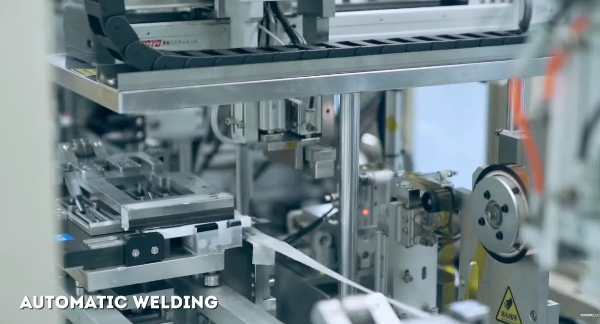
Customer Reviews and Satisfaction
LiPo battery manufacturers earn their reputations through consistent quality and customer satisfaction. The following points detail how customer reviews reflect on the top manufacturers:
Performance Consistency
Customers require high-performing batteries for their varied applications. Manufacturers like Tattu and Gens ace receive high praise for maintaining consistent performance levels. Users often highlight the reliability and long-lasting power delivery of these batteries, reflecting well on the brand’s engineering and quality control.
Durability and Longevity
Durability is a crucial factor. Brands such as Turnigy and Venom attract positive reviews due to the longevity of their batteries. Customers frequently note that these batteries withstand extensive use and maintain their capacity over time, reducing the need for frequent replacements.
Customer Service Experience
Outstanding customer service is often highlighted in reviews for companies like MaxAmps and Zippy. Customers appreciate prompt and helpful responses to inquiries, smooth warranty processes, and the availability of technical support. A customer’s journey doesn’t end at purchase, and excellent service is a strong indicator of overall satisfaction.
Product Availability and Selection
A wide range of products to meet different needs is also key. E-flite and Turnigy are recognized for their extensive selection. Customers note the availability of various sizes, power ratings, and configurations, making it easier to find a battery that fits specific requirements.
Price versus Performance
Competitive pricing paired with performance is frequently lauded. For instance, brands like HRB and Zeee are appreciated for delivering quality at a reasonable cost. Users find that the value for money from these brands stands out, making them popular choices for both hobbyists and professionals.
Customer reviews provide significant insights into the strengths of top LiPo battery manufacturers. Loyal brand followings are often built on the solid foundations of product performance, durability, exceptional customer service, product variety, and cost-effectiveness. Demand for LiPo batteries continues to grow, and these companies consistently meet and surpass customer expectations.
Future Trends in LiPo Battery Technology
The landscape of LiPo (Lithium Polymer) battery technology is dynamically evolving, driven by advancements in various fields. Manufacturers are striving to improve performance, safety, and versatility. Below are some key trends shaping the future of LiPo batteries:
Enhanced Energy Density
One of the primary focus areas is increasing the energy density of LiPo batteries. By incorporating advanced materials and improved manufacturing techniques, manufacturers aim to deliver batteries that are lighter and more powerful.
Solid-State Electrolytes: These are gradually replacing traditional liquid electrolytes, offering higher energy densities and improved safety.Nano-Structured Electrodes: Leveraging nanotechnology to create electrodes that can hold more charge and provide longer-lasting power.
Safety Improvements
Safety remains paramount, as higher energy densities can also increase risks. Therefore, substantial efforts are being made to develop safer batteries.
Thermal Management Systems: Integration of advanced thermal management solutions to prevent overheating and potential hazards.Overcharge and Overdischarge Protection: Enhanced circuitry and software algorithms for real-time monitoring.
Fast Charging Capabilities
The demand for quicker charge times is accelerating research into fast-charging technologies.
Graphene-Based Solutions: Incorporating graphene to reduce charging times significantly while maintaining battery integrity.Optimized Charging Protocols: Development of new charging algorithms that reduce charge time without degrading battery life.
Environmental Sustainability
Sustainability is becoming increasingly important in battery production and disposal.
Quote: “The future of battery technology hinges not just on performance, but also on its environmental footprint.” – Industry expert
Recyclable Materials: Use of materials that are easier to recycle, contributing to a circular economy.Eco-Friendly Manufacturing Processes: Reduction of harmful emissions and waste in the production phases.
Customization and Versatility
LiPo batteries are finding applications in a wide array of sectors, necessitating greater customization.
Flexible Batteries: Development of batteries that can be bent or folded, ideal for wearable electronics and flexible devices.High-Temperature Variants: Creation of batteries that can withstand extreme temperatures, suitable for aerospace and military applications.
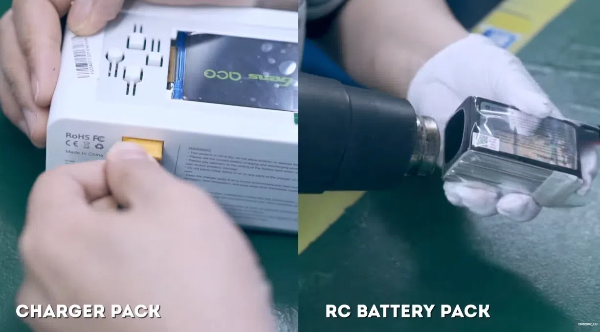
Integration with Smart Technology
The confluence of smart technology and LiPo batteries is creating innovative use-cases.
IoT Integration: Smart batteries that can communicate with devices to manage power consumption efficiently.AI-Driven Battery Management: Using artificial intelligence to predict wear and optimize charging and discharging cycles.
Regulatory and Standards Development
As technologies advance, so do the regulations and standards governing them, ensuring safer and more reliable products.
Global Standards Harmonization: Efforts are underway to create unified global standards for LiPo batteries.Regulatory Compliance: Enhanced focus on meeting regulatory requirements to ensure safety and prevent malpractices.
These trends are paving the way for the next generation of LiPo batteries, with significant implications for various industries and everyday applications.
Conclusion and Recommendations
Selecting a reliable LiPo battery manufacturer necessitates thorough research and due diligence. It is essential to consider several factors to ensure high-quality, long-lasting batteries. Here are some recommendations to assist in making an informed decision:
Evaluate Manufacturer Reputation:
Investigate online reviews and customer testimonials.Consult forums and tech communities for unbiased opinions.Check for any industry awards or recognitions.
Quality Standards and Certifications:
Ensure manufacturers comply with international safety standards.Look for certifications such as ISO, UL, CE, and RoHS.Verify their adherence to stringent quality control processes.
Product Range and Customization:
Assess the variety of battery capacities, voltages, and sizes offered.Check if the manufacturer provides options for custom configurations.Review the flexibility in design and technology integration.
Technological Innovation:
Examine the manufacturer’s investment in R&D.Look for proprietary technologies that enhance performance and safety.Ensure the use of high-quality raw materials and advanced manufacturing techniques.
Customer Support and Service:
Consider the availability of technical support and warranty policies.Evaluate the efficiency in handling returns or replacements.Check for clear and transparent communication throughout the purchase process.
Environmental Responsibility:
Verify the manufacturer’s commitment to eco-friendly practices.Ensure proper disposal and recycling guidelines are provided.Prefer manufacturers who use sustainable materials and processes.
Pricing and Value:
Compare pricing with features and benefits offered.Evaluate the cost-effectiveness in relation to battery lifespan and performance.Beware of exceptionally low prices that might compromise quality.
In summary, trusting a LiPo battery manufacturer requires a comprehensive scrutiny of their credentials, quality, and support systems. Opting for manufacturers who demonstrate reliability, innovation, and environmental consciousness will ensure superior and safe battery performance suitable for various applications. Stakeholders, including hobbyists and professionals, will significantly benefit from adhering to these recommendations, ultimately making an informed and prudent choice in their selection of LiPo battery manufacturers. If you have any questions or needs about our button cell batteries, please feel free to contact us at info@grepow.com.
Related Articles
-
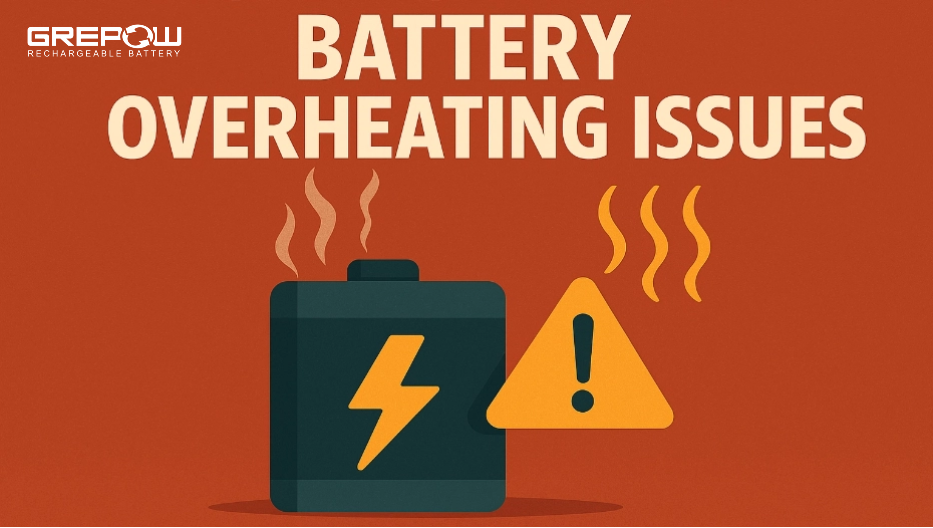
How to Handle Battery Overheating Issues?
2025-08-12 -
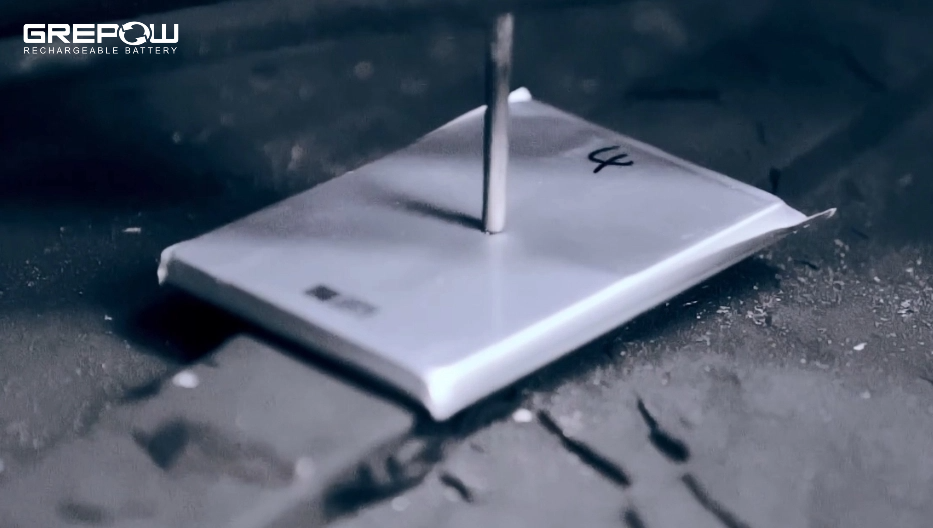
An In-Depth Look at the LiPo Battery Testing Process
2025-08-07 -
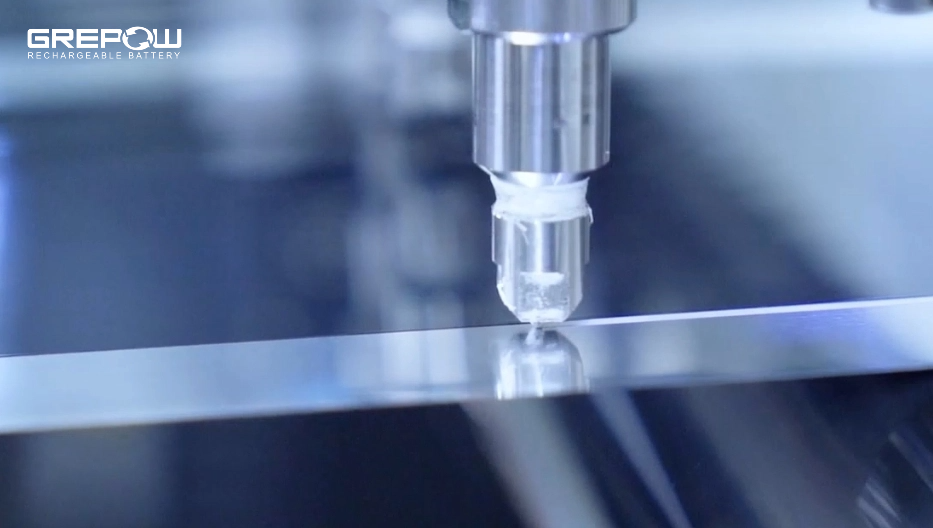
How Is a LiPo Battery Manufactured?
2025-08-06
Related products
-
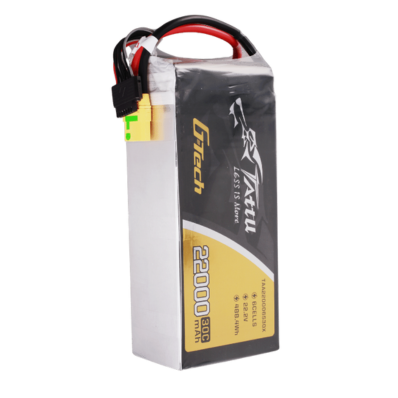
Tattu G-Tech 30C 6S 22000mAh 22.2V Lipo Drone Battery Pack
-
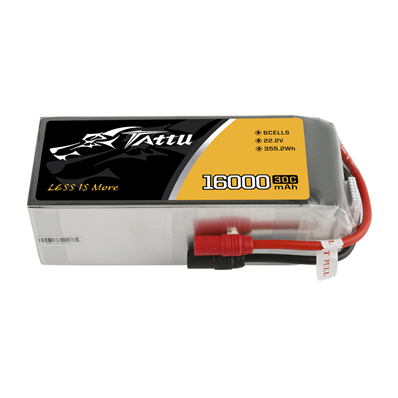
Tattu 6S 16000mAh 30C 22.2V Lipo Drone Battery Pack
-
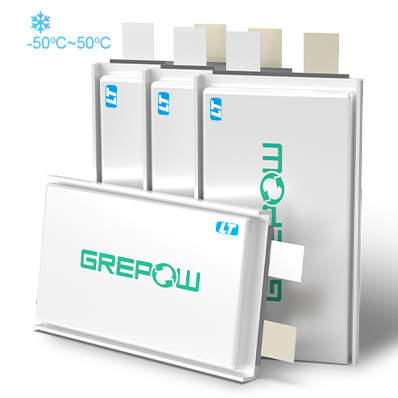
-50℃ to 50℃ Low Temperature Lipo Battery
-
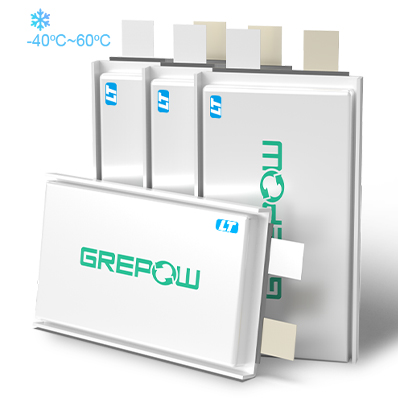
-40℃ to 60℃ Low Temperature Lipo Battery
-
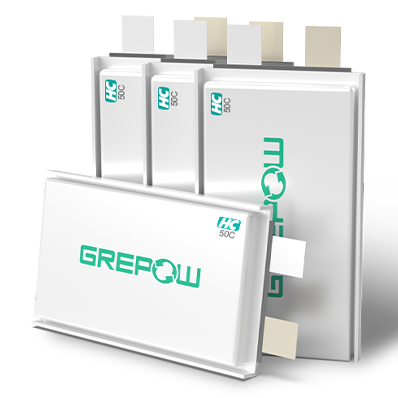
50C High Discharge Battery - High C Rate LiPo
-
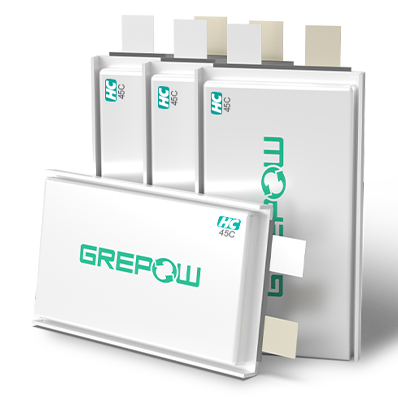
45C High Discharge Battery - High C Rate LiPo
-
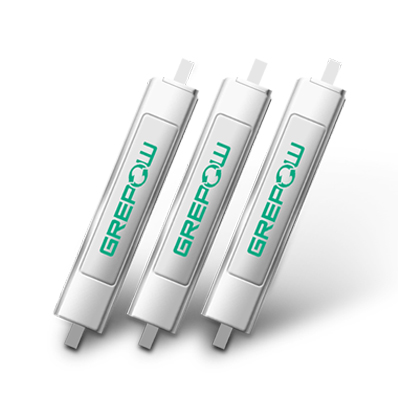
Pouch Ultra Narrow Lipo Battery
-
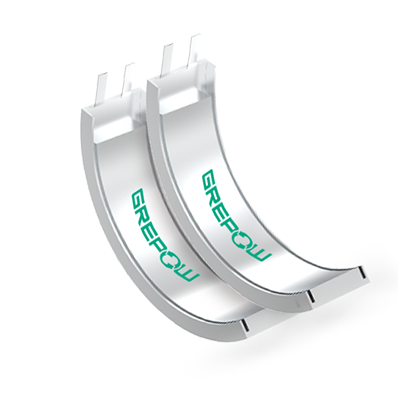
Pouch Curved Lipo Battery

